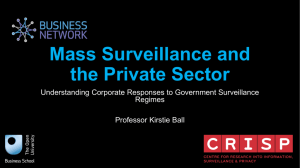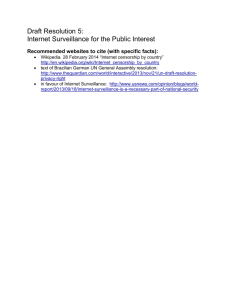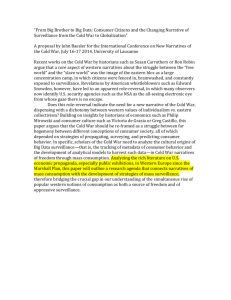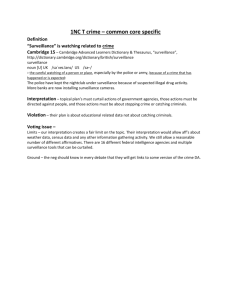briefing papers
advertisement
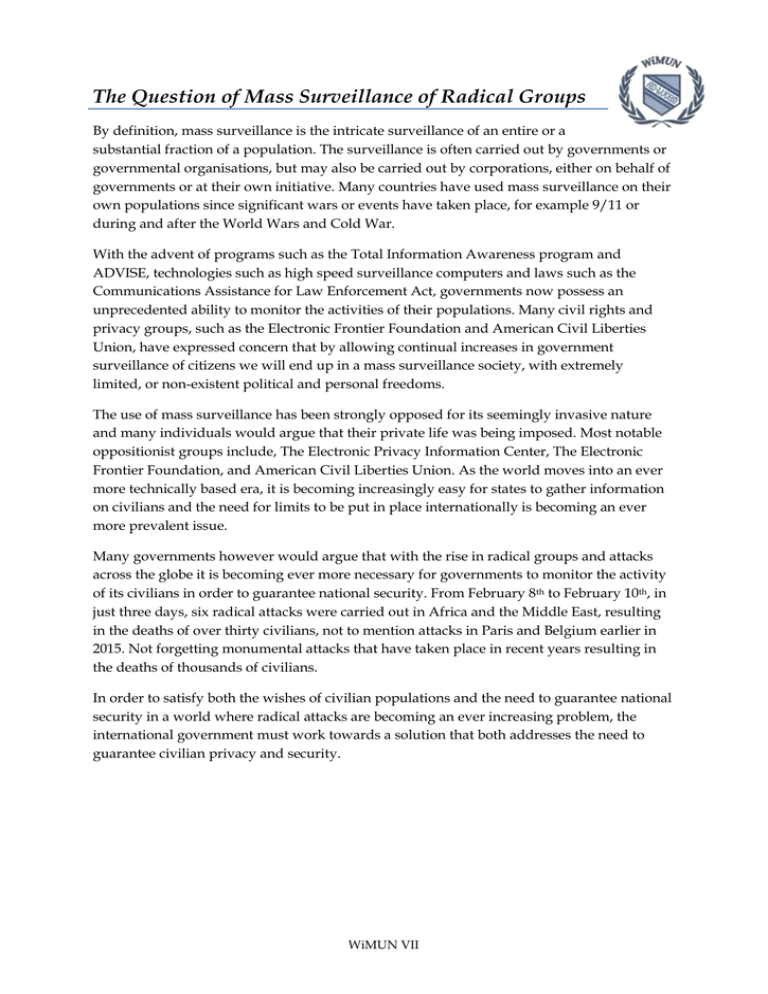
The Question of Mass Surveillance of Radical Groups By definition, mass surveillance is the intricate surveillance of an entire or a substantial fraction of a population. The surveillance is often carried out by governments or governmental organisations, but may also be carried out by corporations, either on behalf of governments or at their own initiative. Many countries have used mass surveillance on their own populations since significant wars or events have taken place, for example 9/11 or during and after the World Wars and Cold War. With the advent of programs such as the Total Information Awareness program and ADVISE, technologies such as high speed surveillance computers and laws such as the Communications Assistance for Law Enforcement Act, governments now possess an unprecedented ability to monitor the activities of their populations. Many civil rights and privacy groups, such as the Electronic Frontier Foundation and American Civil Liberties Union, have expressed concern that by allowing continual increases in government surveillance of citizens we will end up in a mass surveillance society, with extremely limited, or non-existent political and personal freedoms. The use of mass surveillance has been strongly opposed for its seemingly invasive nature and many individuals would argue that their private life was being imposed. Most notable oppositionist groups include, The Electronic Privacy Information Center, The Electronic Frontier Foundation, and American Civil Liberties Union. As the world moves into an ever more technically based era, it is becoming increasingly easy for states to gather information on civilians and the need for limits to be put in place internationally is becoming an ever more prevalent issue. Many governments however would argue that with the rise in radical groups and attacks across the globe it is becoming ever more necessary for governments to monitor the activity of its civilians in order to guarantee national security. From February 8th to February 10th, in just three days, six radical attacks were carried out in Africa and the Middle East, resulting in the deaths of over thirty civilians, not to mention attacks in Paris and Belgium earlier in 2015. Not forgetting monumental attacks that have taken place in recent years resulting in the deaths of thousands of civilians. In order to satisfy both the wishes of civilian populations and the need to guarantee national security in a world where radical attacks are becoming an ever increasing problem, the international government must work towards a solution that both addresses the need to guarantee civilian privacy and security. WiMUN VII Points to consider: What laws does your country already have in place addressing Mass Surveillance? Historically, how has mass surveillance, benefitted/hindered your country and its civilians? Has your country been subject to attacks by radical groups? If so, how was this situation dealt with? Does the need to guarantee national security outweigh the need to guarantee individual rights to privacy and freedom? Useful Links http://en.wikipedia.org/wiki/Mass_surveillance http://en.wikipedia.org/wiki/Global_surveillance_disclosures_%282013%E2%80%93prese nt%29 http://www.hrw.org/news/2014/07/17/united-nations-rein-mass-surveillance https://firstlook.org/theintercept/2014/10/15/un-investigator-report-condemns-masssurveillance/ http://www.theguardian.com/us-news/the-nsa-files WiMUN VII
